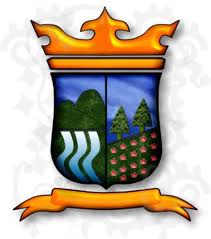
The National Meteorological Office (Onamet) reported that small particles of Saharan dust will begin to enter today over the Dominican Republic.
It indicates that this phenomenon, typical of the time of year since the hurricane season is approaching, will reach the country and the entire Caribbean area.
What is Saharan dust?
Saharan dust originates from dust clouds created from warm air masses loaded with sand particles. These clouds, which form in the summer and part of the fall, travel from the African region to the European and American continents every year.
This causes the sky to be grayish and gives a sticky feeling to the skin, in addition to causing skin and eye allergies.
What is recommended to do?
The ideal is to avoid prolonged exposure to Saharan dust, so the general recommendation is to stay indoors when these clouds are present.
According to the WHO, the greatest care should be taken by people who have problems from the COPD group, as well as older adults, pregnant women, and children.
Details
WHO recommends wearing face shields, such as masks or a damp cloth bandana that completely covers the nose and mouth.
«If you have a sensation of foreign bodies in the eyes, wash with plenty of water. It is preferable to use potable, boiled, or chlorinated water. Also, wash your hands before starting the procedure,» the recommendation adds.
It is also important to cover water sources (wells, containers, or ponds) to prevent contamination. And moisten the floor before sweeping to prevent dust from re-suspending.
The National Meteorological Office (Onamet) reported that small particles of Saharan dust will begin to enter today over the Dominican Republic.
It indicates that this phenomenon, typical of the time of year since the hurricane season is approaching, will reach the country and the entire Caribbean area.
What is Saharan dust?
Saharan dust originates from dust clouds created from warm air masses loaded with sand particles. These clouds, which form in the summer and part of the fall, travel from the African region to the European and American continents every year.
This causes the sky to be grayish and gives a sticky feeling to the skin, in addition to causing skin and eye allergies.
What is recommended to do?
The ideal is to avoid prolonged exposure to Saharan dust, so the general recommendation is to stay indoors when these clouds are present.
According to the WHO, the greatest care should be taken by people who have problems from the COPD group, as well as older adults, pregnant women, and children.
Details
WHO recommends wearing face shields, such as masks or a damp cloth bandana that completely covers the nose and mouth.
«If you have a sensation of foreign bodies in the eyes, wash with plenty of water. It is preferable to use potable, boiled, or chlorinated water. Also, wash your hands before starting the procedure,» the recommendation adds.
It is also important to cover water sources (wells, containers, or ponds) to prevent contamination. And moisten the floor before sweeping to prevent dust from re-suspending.






